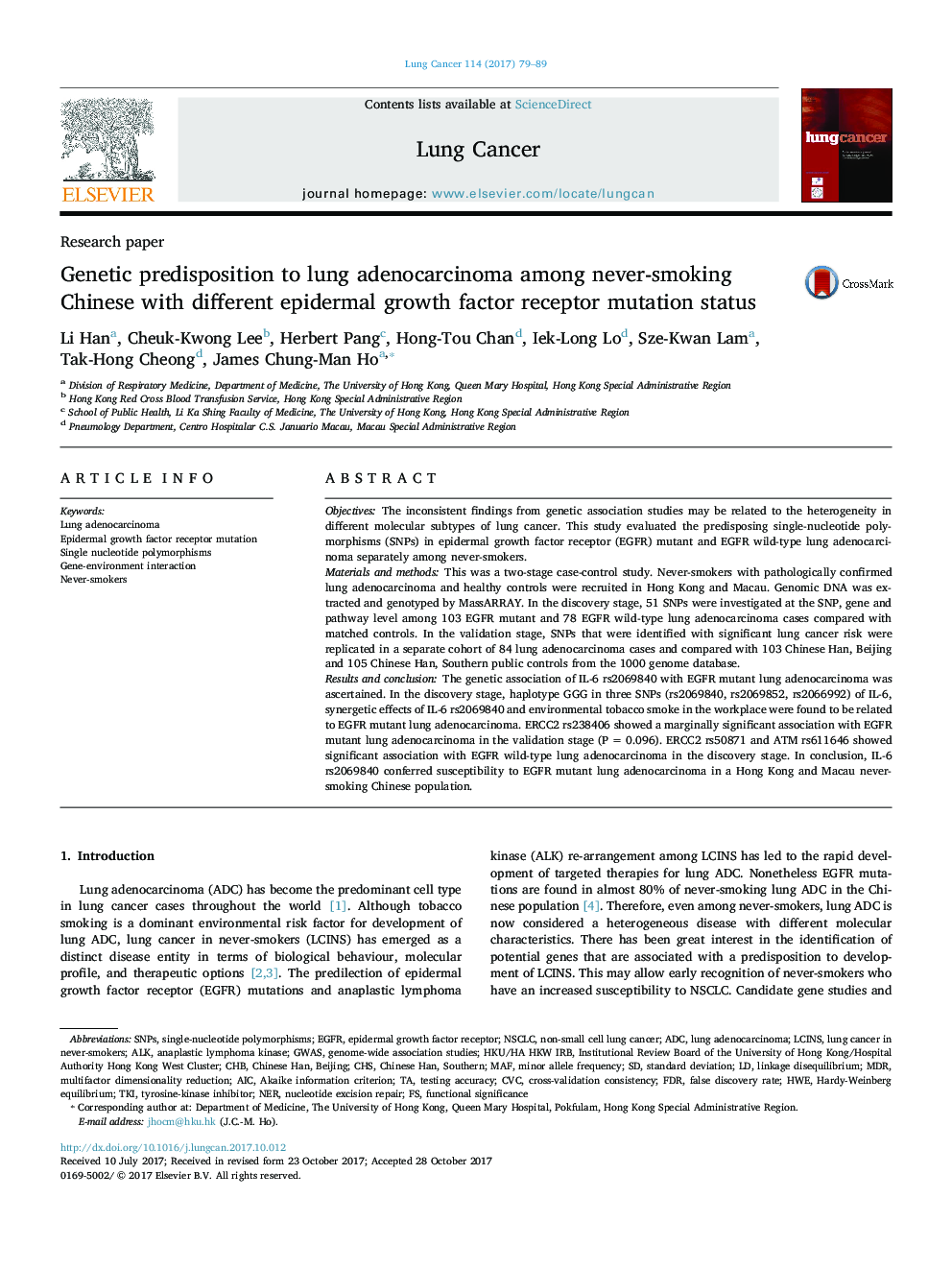| Article ID | Journal | Published Year | Pages | File Type |
|---|---|---|---|---|
| 8454410 | Lung Cancer | 2017 | 11 Pages |
Abstract
The genetic association of IL-6 rs2069840 with EGFR mutant lung adenocarcinoma was ascertained. In the discovery stage, haplotype GGG in three SNPs (rs2069840, rs2069852, rs2066992) of IL-6, synergetic effects of IL-6 rs2069840 and environmental tobacco smoke in the workplace were found to be related to EGFR mutant lung adenocarcinoma. ERCC2 rs238406 showed a marginally significant association with EGFR mutant lung adenocarcinoma in the validation stage (PÂ =Â 0.096). ERCC2 rs50871 and ATM rs611646 showed significant association with EGFR wild-type lung adenocarcinoma in the discovery stage. In conclusion, IL-6 rs2069840 conferred susceptibility to EGFR mutant lung adenocarcinoma in a Hong Kong and Macau never-smoking Chinese population.
Keywords
cross-validation consistencyCVCHWEMDRADCTKIEGFRFDRSNPsAICMAFCHSCHBNERALKstandard deviationFunctional significanceHardy-Weinberg equilibriumgene-environment interactionnucleotide excision repairEpidermal growth factor receptor mutationlung adenocarcinomaNSCLCNon-small cell lung cancerLinkage disequilibriumminor allele frequencyAnaplastic lymphoma kinaseGenome-wide association studiesGWASAkaike information criterionTyrosine-kinase inhibitorfalse discovery rateNever-smokersSingle nucleotide polymorphismsSingle-nucleotide polymorphismsMultifactor dimensionality reductionEpidermal growth factor receptor
Related Topics
Life Sciences
Biochemistry, Genetics and Molecular Biology
Cancer Research
Authors
Li Han, Cheuk-Kwong Lee, Herbert Pang, Hong-Tou Chan, Iek-Long Lo, Sze-Kwan Lam, Tak-Hong Cheong, James Chung-Man Ho,
